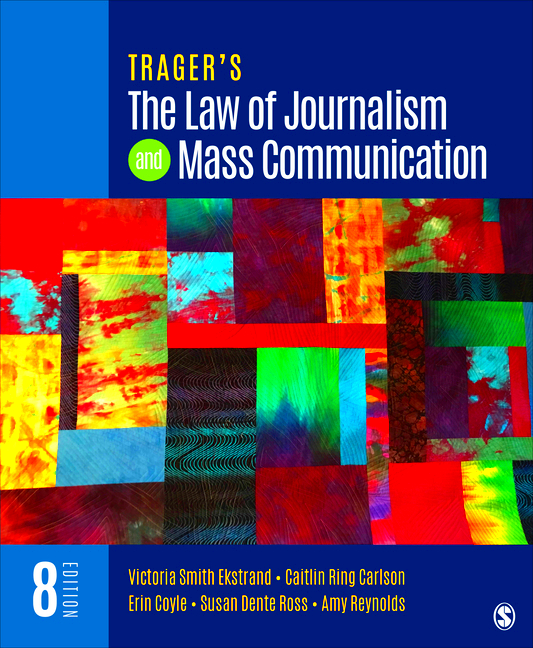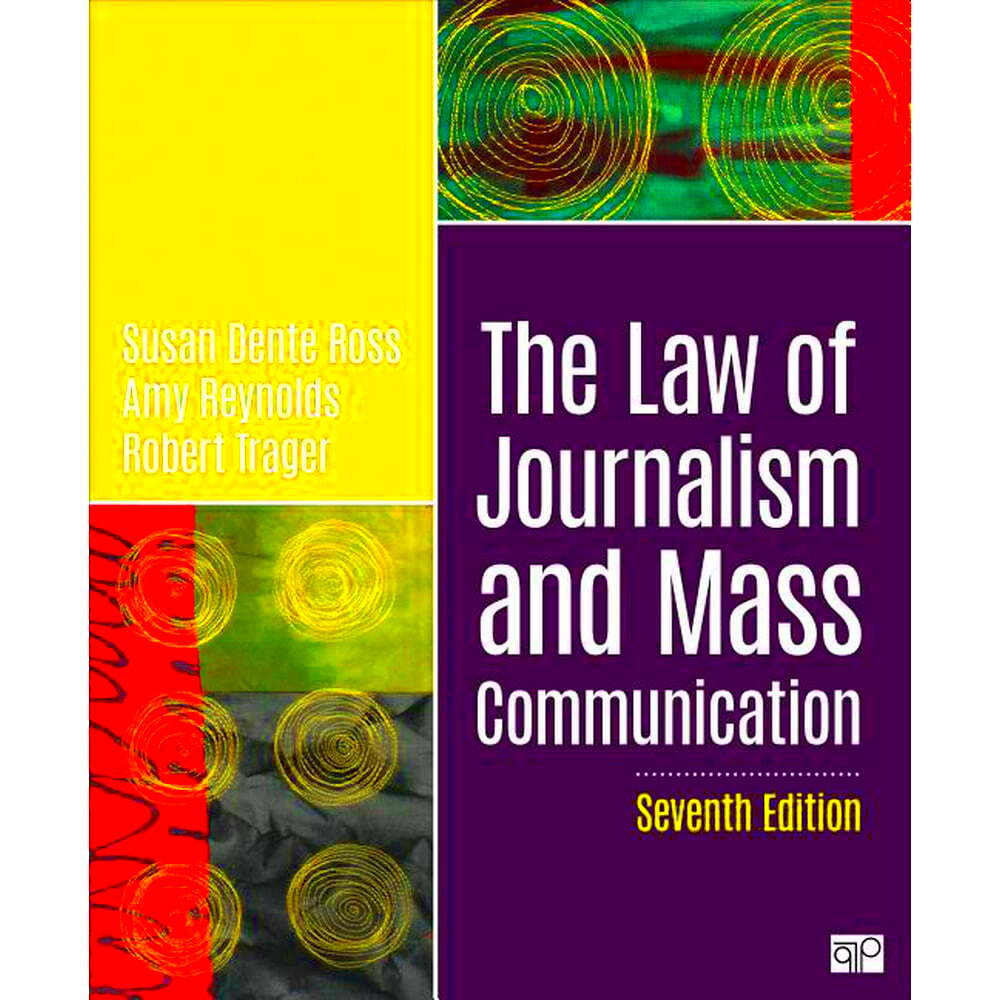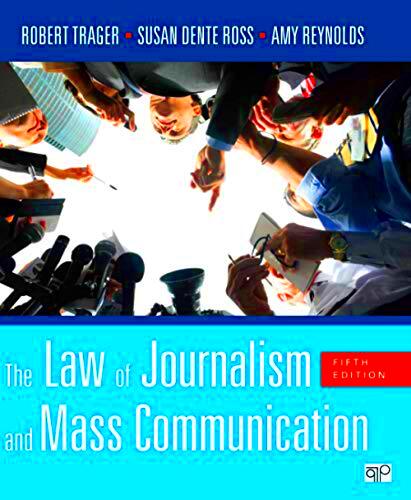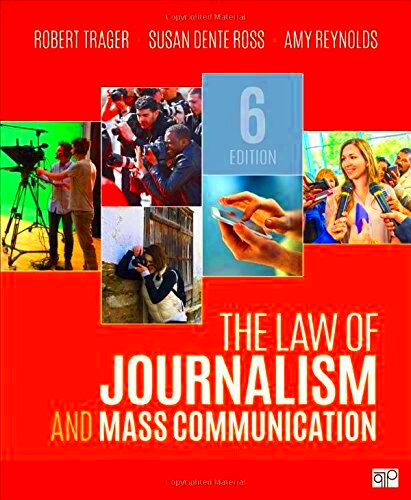Exploring the Law of Journalism and Mass Communication
In the present age the realm of journalism and mass communication goes beyond simply reporting news. It entails maneuvering through a web of regulations and ethical norms. These regulations dictate aspects ranging from the collection of information to its dissemination. For individuals engaged in the media industry grasping these laws is vital, for safeguarding both their rights and the authenticity of their endeavors. Witnessing the transformation of media legislation over time has underscored the importance of journalists and communicators staying well versed in legal principles to steer clear of challenges and elevate their professional approach.
Key Principles of Journalism Law

In the realm of journalism law there are some fundamental principles that every journalist ought to know. These principles shape the way journalists carry out their duties and help them uphold legal limits and ethical norms.
- Accuracy and Fairness: Journalists are expected to provide accurate and fair reporting. This means double-checking facts and presenting all sides of a story. Any deviation from these principles can lead to legal consequences and damage to credibility.
- Confidentiality: Protecting the identity of sources is crucial. Journalists often rely on confidential sources to expose important issues. Laws protect these sources, but there are limits, especially if the information is crucial for public safety.
- Public Interest: Journalism must serve the public interest. This principle balances the need for transparency with the rights of individuals to privacy. It often becomes a grey area in legal disputes.
- Respect for Privacy: While journalists have the right to gather information, they must also respect individual privacy rights. This can sometimes be a challenging balance to maintain.
Grasping these concepts aids reporters in fulfilling their duties with care and ensures they are prepared to tackle potential legal issues that may come up in their profession.
Freedom of Speech and Press

The right to speak and publish freely is a core principle upheld in numerous democratic nations. These rights serve as the foundation of a society, enabling people to voice their thoughts and disseminate knowledge without excessive interference. Nevertheless this liberty is not without bounds as it carries its own obligations and restrictions.
In my view I’ve seen that although freedom of speech permits diverse forms of expression there are usually restrictions in place to safeguard against potential harm. For example
- Hate Speech: Freedom of speech does not cover hate speech or speech that incites violence. Laws are in place to prevent such content from harming individuals or communities.
- National Security: During times of national crisis, there may be restrictions on certain types of information to protect national security. This balance between security and freedom is delicate and often debated.
- Public Morality: Speech that offends public morality may also be restricted. These laws aim to prevent content that could disrupt societal norms or values.
In my professional journey, I’ve noticed how crucial it is for reporters to grasp these subtleties. They need to tread carefully along these lines to uphold their position in a press while also adhering to legal and moral standards. It’s an ongoing tightrope walk but a necessary one to preserve the authenticity and credibility of journalism.
Privacy Laws Affecting Journalists

Privacy regulations present a challenge for reporters. While they safeguard people against unwanted interference they can also impede the seamless exchange of information. Based on my observations I have witnessed the impact of these laws on journalistic conduct. They significantly influence the extent to which a journalist can delve into matters and uphold respect for personal boundaries.
Here are a few important points about privacy laws that affect reporters:
- Personal Privacy: Journalists must be cautious not to invade personal privacy. This includes respecting individuals’ private lives and not disclosing personal information without consent. Laws often prohibit publishing details that could lead to embarrassment or harm.
- Public Figures: The rules are slightly different for public figures. While they have a reduced expectation of privacy, journalists still need to tread carefully to avoid defamation and ensure the information is relevant to public interest.
- Legal Exceptions: There are exceptions to privacy laws, such as when information is of significant public interest. However, these exceptions are often narrowly defined and require a thorough understanding to navigate effectively.
In my own professional endeavors I’ve had to navigate these factors with care. It’s not solely about adhering to the legal requirements but also upholding ethical principles that honor people’s privacy while fulfilling the responsibility to keep the public informed.
Defamation and Libel in Media
Libel and defamation are issues for reporters. They entail spreading untrue information that damages a persons reputation potentially resulting in severe legal consequences. Having witnessed defamation cases I can vouch for the necessity of journalists being precise and just in their news coverage.
Here’s the scoop on defamation and libel:
- Defamation: This is any statement that damages someone’s reputation. Defamation can be either spoken (slander) or written (libel). The key is whether the statement is false and injurious.
- Libel: This refers specifically to defamatory statements made in written form. It’s easier to prove libel in court because written records provide clear evidence of the statement made.
- Proof of Falsity: To succeed in a defamation claim, the plaintiff must prove that the statement was false. Truth is a strong defense against defamation claims.
- Public Figures vs. Private Individuals: Public figures have a higher burden of proof, as they must show that the defamation was made with actual malice, i.e., knowledge of its falsity or reckless disregard for the truth.
Through my own experiences I have come to realize that thorough reporting and verification of facts are the most effective ways to protect oneself, against defamation lawsuits. It involves being meticulous about the truthfulness of information shared and being mindful of the potential consequences of what is made public.
Access to Information and Public Records
The ability to gather information and public records plays a role in investigative reporting. It allows reporters to reveal truths that could otherwise stay concealed. Through my experiences in the field of journalism I’ve witnessed the significance of this access even though it often presents its own obstacles.
Lets take a closer look at the process of accessing information and public records.
- Freedom of Information Acts: Many countries have laws that allow journalists to request information from public bodies. These acts are designed to ensure transparency and accountability in government and other public institutions.
- Exemptions: Not all information is accessible. There are exemptions for sensitive information related to national security, personal privacy, and ongoing investigations. Understanding these limitations is essential for navigating information requests.
- How to Request Information: Requests for public records often need to be specific and well-defined. Being clear and precise about what you need can make the process smoother and more effective.
- Challenges: Sometimes, accessing information can be a lengthy process fraught with bureaucracy. Persistence and understanding the legal framework can help in overcoming these obstacles.
From what I’ve seen making the most of public records takes time and persistence. It involves maneuvering through obstacles to find information that upholds the publics right to be informed.
Ethical Considerations in Journalism
Journalism ethics go beyond mere guidelines; they form the core foundation of upholding trust and credibility. Throughout my experiences in the media world I’ve witnessed how breaches in ethics can tarnish reputations and erode public confidence. Reporting is not solely about presenting information; it’s also about doing so with honesty and consideration.
Here are a few ethical factors that every journalist should be aware of
- Objectivity and Bias: Striving for objectivity is crucial, but it’s important to acknowledge that complete neutrality can be challenging. Being transparent about one’s biases and striving for balanced reporting helps maintain credibility.
- Respect for Sources: Treating sources with respect, including protecting their anonymity when necessary, is essential. This respect fosters trust and encourages sources to come forward with valuable information.
- Accuracy and Verification: The cornerstone of ethical journalism is accuracy. Every piece of information should be verified before publication. This practice not only upholds the truth but also protects against legal repercussions.
- Responsibility to the Public: Journalists have a duty to serve the public interest. This means avoiding sensationalism and focusing on reporting that benefits society rather than merely grabbing attention.
In my view ethical journalism goes beyond adhering to rules; it involves upholding principles that honor and educate the audience. It’s finding harmony between conveying the truth and being mindful of the wider consequences of ones actions.
Recent Changes and Trends in Media Law
The world of media is always changing just like the laws that regulate it. Recent updates in media legislation show how technology, public opinion and international norms are evolving. Keeping up with these changes can be tough but its essential for anyone working in journalism to stay informed.
Some notable trends and changes include:
- Digital Privacy: With the rise of digital media, privacy laws are increasingly addressing online behavior. Regulations like GDPR in Europe are influencing global standards, making it crucial for journalists to understand data protection and privacy concerns.
- Social Media Regulations: Governments are beginning to impose stricter regulations on social media platforms to combat misinformation and harmful content. These regulations can affect how journalists use and interact with social media.
- Changes in Defamation Laws: Some jurisdictions are revising defamation laws to better balance freedom of expression with protection against false claims. These changes often reflect evolving societal attitudes towards media and privacy.
- Increased Scrutiny of Sources: There’s growing scrutiny on how journalists source their information, particularly with concerns about fake news and misinformation. Understanding and adhering to new standards for sourcing is becoming more important.
From what I’ve seen staying on top of these shifts demands attentiveness and flexibility. Its all about grasping the ways in which fresh laws and rules influence journalistic norms while making sure that your work upholds both legal standards and ethical integrity.
Frequently Asked Questions
In my conversations with other journalists and people in the media field I often encounter questions regarding journalism and media regulations. Lets delve into some of the inquiries and their responses.
- What is the difference between defamation and libel? Defamation is a broad term for any false statement that damages a person’s reputation, while libel specifically refers to defamatory statements made in writing or published form.
- Can journalists use private information in their reports? Journalists can use private information if it is in the public interest. However, they must navigate privacy laws carefully and respect individuals’ rights to privacy.
- How do new privacy laws affect online journalism? New privacy laws, like GDPR, require journalists to be more cautious about how they handle personal data online. This includes ensuring data protection and being transparent about data collection practices.
- What should journalists do if they face legal threats? If faced with legal threats, journalists should seek legal advice and ensure they understand their rights. It’s also important to document everything and, if necessary, be prepared to defend their reporting in court.
These frequently asked questions capture the changing landscape of journalism and the law. Being up to date and taking initiative enables reporters to navigate these challenges effectively and maintain their commitment to delivering meaningful and responsible news coverage.
Conclusion
As I ponder the complexities of journalism and mass communication law it becomes evident that these legal frameworks play a role in safeguarding individual rights and upholding media integrity. Whether it’s navigating privacy regulations delving into defamation intricacies or keeping up with emerging trends in media law the journey presents both hurdles and rewards. Personally staying informed about these legal principles has not protected my work but also underscored the importance of journalism. The ever changing landscape calls for vigilance, adaptability and a steadfast commitment to truth and transparency. For anyone in the media industry tackling these challenges with integrity is essential for making a meaningful impact and maintaining professional standards.

